The final weeks of this Proms festival are serving up some terrific big choral works and, sitting in the stalls before this performance of Elgar’s Dream of Gerontius, how wonderful it was to see the London Philharmonic Choir and Hallé Choir spanning the breadth of the Royal Albert Hall stage and spreading up into the Choir seats above. At moments such as this, the Hall seems a secular cathedral, if there can be such a thing, the magnificent organ a sort of high altar and the thousands of Prommers a congregation gathered to celebrate their personal faith – in a deity, perhaps, or humanity, or simply music itself. For, however one responds personally to Cardinal Newman’s solemn, mystical poetry, there’s no doubting the sincerity of Elgar’s own engagement.
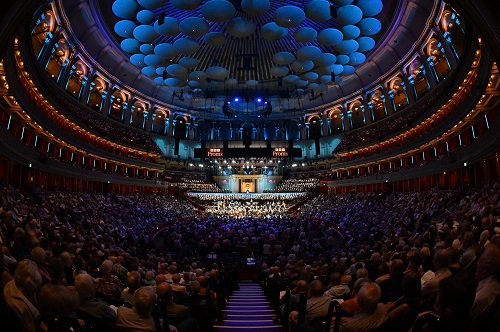
Conducting an inspired London Philharmonic Orchestra, Edward Gardner made Gerontius’ dream a true drama. Tempi were pressing, but never rushed; the mood was urgent but the moments of lyrical reflection had spaciousness. The Prelude was lyrical but brooding, as Gardner built the episodes powerfully, sustaining tension, shaping the layers of the texture so that the details could make their expressive mark. The ritardando into the Andantino was beautifully judged, the ensuing cantabile noble and assured, then ebbing gently for the solo viola and lower strings to establish a tender but tentative air before Gerontius’ first statement. Throughout the performance the transitions felt natural, the semi-chorus’s ‘Kyrie’ floating in so naturally to answer Gerontius’ pleading; the strings urgent steps pressing forward as Gerontius rouses his soul to face his God; the fragmented episode after Gerontius’ words, “I can do no more”, angry and thrusting; the lead-in to the Demons’ Chorus snarling and angry, driven by furious string basses and roaring brass.
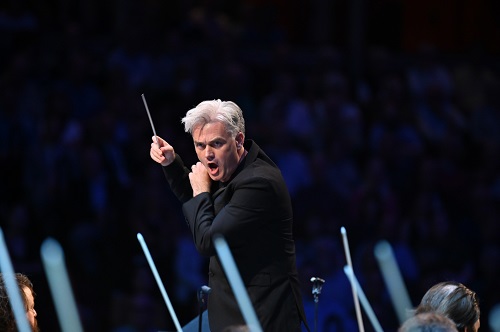
Rehearsed respectively by Neville Creed and Matthew Hamilton, the London Philharmonic Choir and the Hallé Choir were absolutely superb, ethereal and majestic as required. “Go in the name” was purposeful and inspiring, and Gardner carefully layered the voices and strings in the chorus’s quiet ending, then built a stirring swell through the Priest’s final words, “through Christ, our Lord”, the organ throbbing in the heart of the orchestral chord. The massed singers were a terrifically terrifying Chorus of Demons, baying mockingly, whipped up by the stabbing orchestral accents and furious counterpoint, then transformed themselves into a beautifully tranquil host of Angelicals, their song – as Gerontius’ Soul observes, “the rushing … of the summer wind among the lofty pines” – envigored by stirring harp currents, then becalmed by the organ’s gentle breathing. “Praise to the Holiest” pulsed through the Hall with ecstatic energy, yet Gardner kept the textures clear – and somehow the singers had saved just a little bit more for their closing statement of praise, “Most sure in all His ways!”.
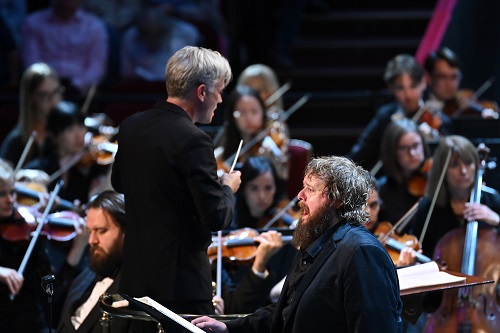
Allan Clayton’s Gerontius was supremely dignified and eloquent. For all the orchestral drama, Clayton was motionless, allowing his voice to do all the work in his conversations with the orchestra and with Jamie Barton’s Angel. His control of the colour was wonderful, movingly conveying fluctuating faith and doubt. His diction was no less impressive; every word could be heard. Though Gerontius’ pain and fear were evident from the first, Clayton didn’t exaggerate the suffering – the fermata in his first appeal, ‘Mary pray for me’, was perfectly judged. His ‘Sanctus’ came from the heart, strong and impassioned, with just the right touch of defiance tinting the beseeching. There was an operatic flourish as he vowed to sever the ties binding him to earthly realms; then, a hushed reverence as he adored the trinity, “Father, Son, and Holy Ghost”. “Novissima hora est” was magical, floating with an almost Grimes-like introspectiveness.
In Part 2, Clayton expressed a deep spirituality and captured the Soul’s rapture without any affectation. “I went to sleep” was simple and serene; “My soul is in my hand” glowed with awed acceptance, the Lord’s majesty embodied in the swell of burnished brass. “Take me away” soared and flamed with a cathartic anguish that was both disturbing and uplifting, initiating a stunningly beautiful lyrical outpouring. Clayton’s utter commitment to such an emotionally and technically demanding role was truly remarkable.
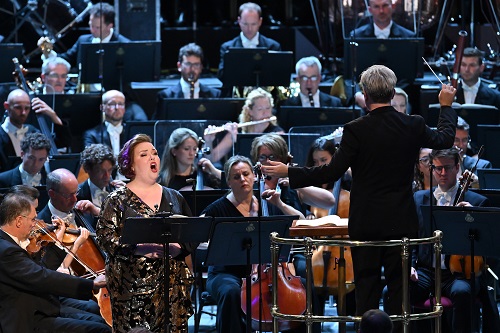
American mezzo-soprano Jamie Barton was a radiant Angel, deeply communicative, her rich, creamy voice expressing real concern and love in her blessing, “Alleluia, For evermore”, the comfort strengthened by some lovely horn playing. The parlando conversation between the Angel and Gerontius’ Soul was flowing and natural, always lyrical. Occasionally Barton’s intonation wavered a little, but the bloom of her upper register – always employed judiciously, as in the Angel’s final song of praise – undoubtedly pushed aside any very minor quibbles. She brought an apt darkness to her voice, too, warning “though knowest not, my child, What thou dost ask”, after the sweetness of affirmation that “thou shalt see thy Lord”. Her account of Christ’s crucifixion and agony rippled with feeling and fervour, and there was palpable apprehension in her guidance, “Thy judgement now is near”, as she introduced the Angel of Agony.
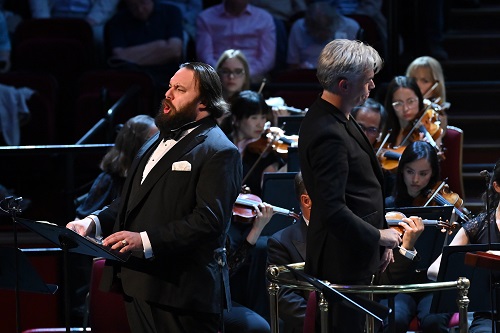
It was good to have a true bass in the role of the Priest and the Angel of Agony, and even though the former’s ‘Proficiscere’ lies quite high, James Platt’s tone was authoritative and imposing, the projection firm and the diction clear. The Angel of Agony’s words had a terrific focus but the dark menace was softened by vocal warmth. The vision of the “glorious Home, where they shall ever gaze on thee” truly was glorious, Platt’s voice rich and free, then softening but sombre, the fermata on “gaze” held firmly, conveying a sense of the infinite.
Whatever one’s religious affiliation or fervour, or lack of either, Gerontius is at heart, surely, most concerned with human frailty. In probing our uncertainties, fears and hopes, Elgar’s music embodies the ineffable – the moment when the soul is freed from the body. Dwelling more on the dramatic than the philosophical, Edward Gardner and Allan Clayton struck just the right balance between anxiety and confidence.
When he completed the work in the summer of 1900, Elgar remarked, ‘The trees are singing my music. Or have I sung theirs?’ And, when Gerontius was performed at the Düsseldorf Festival in Germany in 1902, Richard Stauss judged that ‘with that work England for the first time became one of the modern musical states’. Nobody in the Royal Albert Hall could have failed to be moved both by Elgar’s creative vision and these musicians’ insight. A performance to savour and remember.
Claire Seymour
Edward Elgar: The Dream of Gerontius
Allan Clayton (tenor), Jamie Barton (mezzo-soprano), James Platt (bass), Hallé Choir, London Philharmonic Choir, London Philharmonic Orchestra, Edward Gardner (conductor)
Royal Albert Hall, London; Wednesday 31st August 2022.